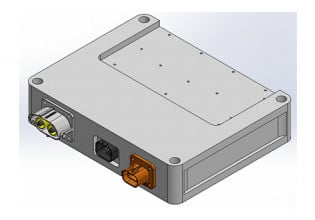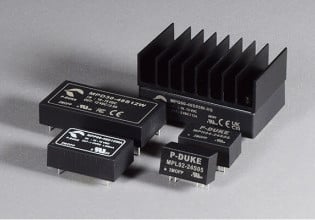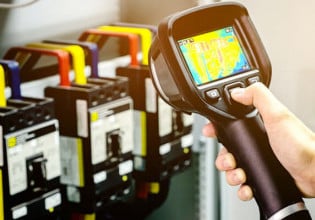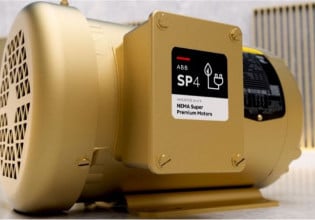Ireland home of First Hybrid-Flywheel Energy Storage Plant in Europe
Irish company Schwungrad Energie Limited is behind the initiative which will be based in Rhode, Co. Offaly and is being developed in collaboration with the Department of Physics & Energy at University of Limerick. It has received the support of Beacon Power, LLC, a US based company and global leader in the design, development and commercial deployment of proven flywheel energy storage technology at the utility scale. Flywheel technology produces and stores small but highly flexible amounts of power to suit grid requirements.
Schwungrad received the first phase of up to €2.55 million European Commission Horizon 2020 funding to assist the project in December 2014, aimed at developing a hybrid system security and reliability technology, to overcome technical barriers and enable the establishment of low carbon and efficient energy systems.
Additional investment has been received from Offaly based company, RR Projects and the European Commission, to facilitate development of Europe’s first Hybrid flywheel system service facility. The Irish Trasmission System Operator. EirGrid, selected this project as a potential “Demonstration Project†under its Smart Grid Program.
This initiative promotes and supports the development, trialing and proofing of new concepts, solutions and technologies. It focuses on projects that demonstrate specific smart grid concepts in an Irish power system context, particularly system services. Schwungrad and EirGrid are investigating possible collaboration on how best to operate the plant to provide rapid frequency response and voltage control, which contribute to system stabilization
A team at the Department of Physics & Energy at University of Limerick, led by Prof. Noel Buckley and Dr Robert Lynch, are focused on electrochemical batteries for large-scale energy storage and grid stabilization. These technologies are becoming critically important as an increasing fraction of electricity is derived from renewable sources such as wind. The work will include research and modelling.
Minister Ged Nash said, “This announcement is great news for Offaly and the midlands region in general with up to 40 jobs being created in the construction phase of the hybrid-flywheel energy plant, and up to 15 full-time jobs thereafter. It is also an exciting development in terms of clean energy technology and I want to wish Schwungrad Energie well with the project.â€
Frank Burke, Schwungrad Technical Director, with extensive industry experience and who was involved in the early development of system services, says: “Flywheel technology has the advantage of being a ‘100% clean’ power source as the hybrid technology has no direct fuel use or related emissions, and no water consumption. It simply absorbs power, stores it and is continuously ready to respond to any grid requirements to rapidly inject power… It is not a power plant in the conventional sense, but operates as a shock absorber and dynamic energy support system, absorbing and re-injecting small but highly flexible amounts of power to suit grid requirements.â€
“The site in Rhode was selected due to the historical tradition of electricity generation in the area and the infrastructure available on the brownfield site. Access to the electricity network and other related services can be achieved with minimal disruption. The facility will be unobtrusive -the flywheels are under two meters in height and almost silent in operation.
Beacon Power President & CEO, Barry Brits says: “Beacon Power is very pleased to be working with the innovative team at Schwungrad and looks forward to supporting the successful implementation of this important project in Ireland. We are optimistic about the potential in Ireland and Europe for short-duration flywheel energy storage as a key tool to help address the grid system stability impacts of leading implementation of renewable energy sources.
“In this ‘new’ energy storage marketplace, we have been providing these kinds of services in the US for over seven years, have accumulated over eight million flywheel operating hours and delivered more than 300 gigawatt-hours of service to electric grid operators.â€
Doireann Barry, EirGrid, says: “EirGrid will have a keen interest in the results from Schwungrad Energie’s proposal to build a hybrid powered flywheel test facility in Rhode. This project has the potential to address system operation issues including advanced voltage controls and system services reserve provision. This could provide additional flexibility to the grid and facilitate the integration of high levels of variable renewable energy sources.â€






